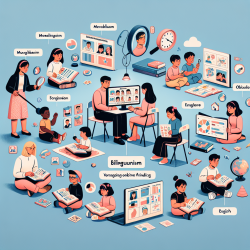Introduction to Institutional Ethnography
In the realm of health professions education (HPE), the quest for innovative research methodologies is perpetual. Enter institutional ethnography, a qualitative research approach that promises to revolutionize how we understand and improve educational practices. This methodology, rooted in the critical feminist approach of Dorothy Smith, focuses on the everyday lives of individuals and how these are influenced by institutional forces.
Why Institutional Ethnography Matters Now
As the landscape of HPE evolves, institutional ethnography offers a unique lens to examine the intricate social relations that shape educational environments. The research by Kearney et al. (2019) highlights the potential of this methodology to uncover the often-hidden institutional dynamics that impact both educators and learners. By focusing on the actual experiences of individuals, institutional ethnography provides a grounded perspective that traditional methodologies might overlook.
Practical Applications for Practitioners
For practitioners in the field of HPE, institutional ethnography offers several practical applications:
- Understanding Institutional Dynamics: Gain insights into how institutional policies and practices affect everyday educational experiences.
- Enhancing Educational Practices: Use findings to inform and improve teaching methodologies and curricula, ensuring they align with the real-world needs of students and educators.
- Promoting Social Justice: Address inequalities within educational settings by identifying and challenging institutional barriers.
Encouraging Further Research
The potential of institutional ethnography in HPE is vast, yet underexplored. Practitioners are encouraged to delve deeper into this methodology to uncover new insights and drive meaningful change. By embracing this approach, researchers can contribute to a more nuanced understanding of the complexities within educational systems.
Conclusion
Institutional ethnography is not just a research methodology; it's a transformative tool that can reshape the future of health professions education. By focusing on the lived experiences of individuals and the institutional forces at play, this approach offers a path to more equitable and effective educational practices.
To read the original research paper, please follow this link: Why institutional ethnography? Why now? Institutional ethnography in health professions education.










